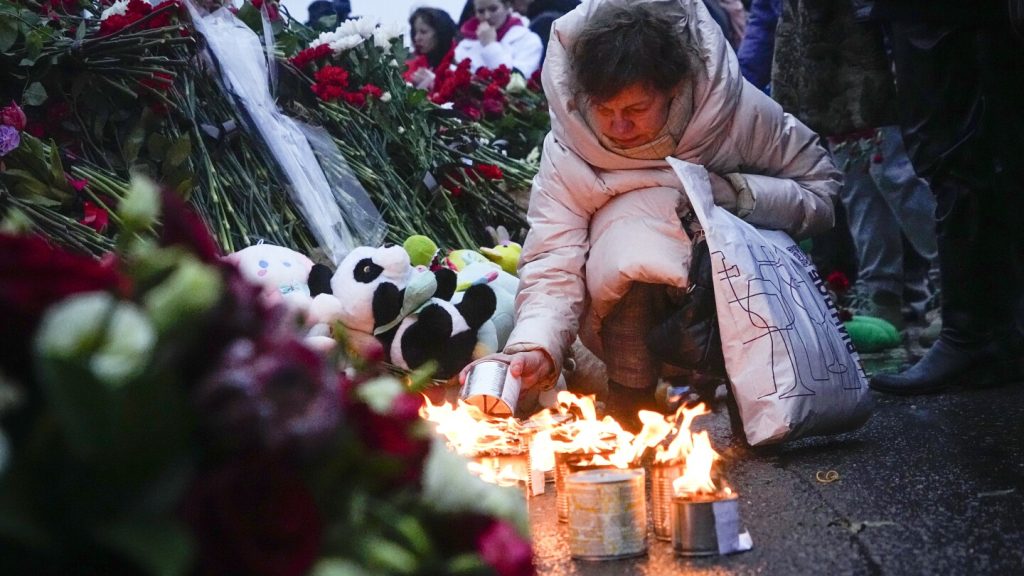Shocked Russians gathered at the Crocus City concert hall in Moscow to honor the more than 100 people who lost their lives in a brutal attack claimed by the Islamic State group. The attack, involving gunmen opening fire on a crowd and setting off explosives, left the concert hall in ruins. Mourners laid flowers and teddy bears near the site as firefighters worked to put out the flames and remove bodies from the rubble. Social media was flooded with videos and images of people paying their respects at monuments and Russian embassies around the world.
The tragic incident came just after Russian President Vladimir Putin secured a fifth term in office, amid allegations of suppressing opposition voices during a controversial election. Despite Islamic State claiming responsibility, Putin pointed fingers at Ukraine, where Russia has been involved in a prolonged conflict. As the death toll rose, questions arose among the Russian population regarding the effectiveness of security measures at public events. Some criticized the lack of security despite extensive surveillance in the country.
Russian state television highlighted the outpouring of grief and support from foreign leaders, while showcasing officials overseeing the cleanup operation. While many expressed sadness and shock at the attack, others criticized the lack of information provided by state media. The incident reignited fears of past terror attacks that plagued Russia in the early 2000s and 2010s, mostly carried out by Islamist separatists from the North Caucasus. The relative calm in recent years had led to a false sense of security among the population.
The inability of authorities to prevent the gunmen from entering the concert hall despite security measures in place left many Russians feeling anxious about their safety. Discussions on social media platforms revealed a heightened sense of caution among citizens, with some choosing to avoid crowded places temporarily. Despite condemning the attack as a “barbaric terrorist act,” Putin suggested Ukrainian interference in allowing the suspects to escape across the border. Many Russians questioned this narrative and instead demanded answers from their own security services regarding the failure to thwart the attack.
The incident sparked a nationwide dialogue on the preparedness of Russian security services and the potential risks the country faces in the future. Some voiced concerns about a return to the violence of the Chechen wars, while others called for a thorough investigation into the security lapses that allowed the attackers to carry out such a devastating act. With the shock and grief still fresh in the minds of Russians, the country grapples with the aftermath of one of the deadliest attacks in recent memory. Despite the show of solidarity and support, questions remain about the country’s ability to prevent such tragedies in the future.














